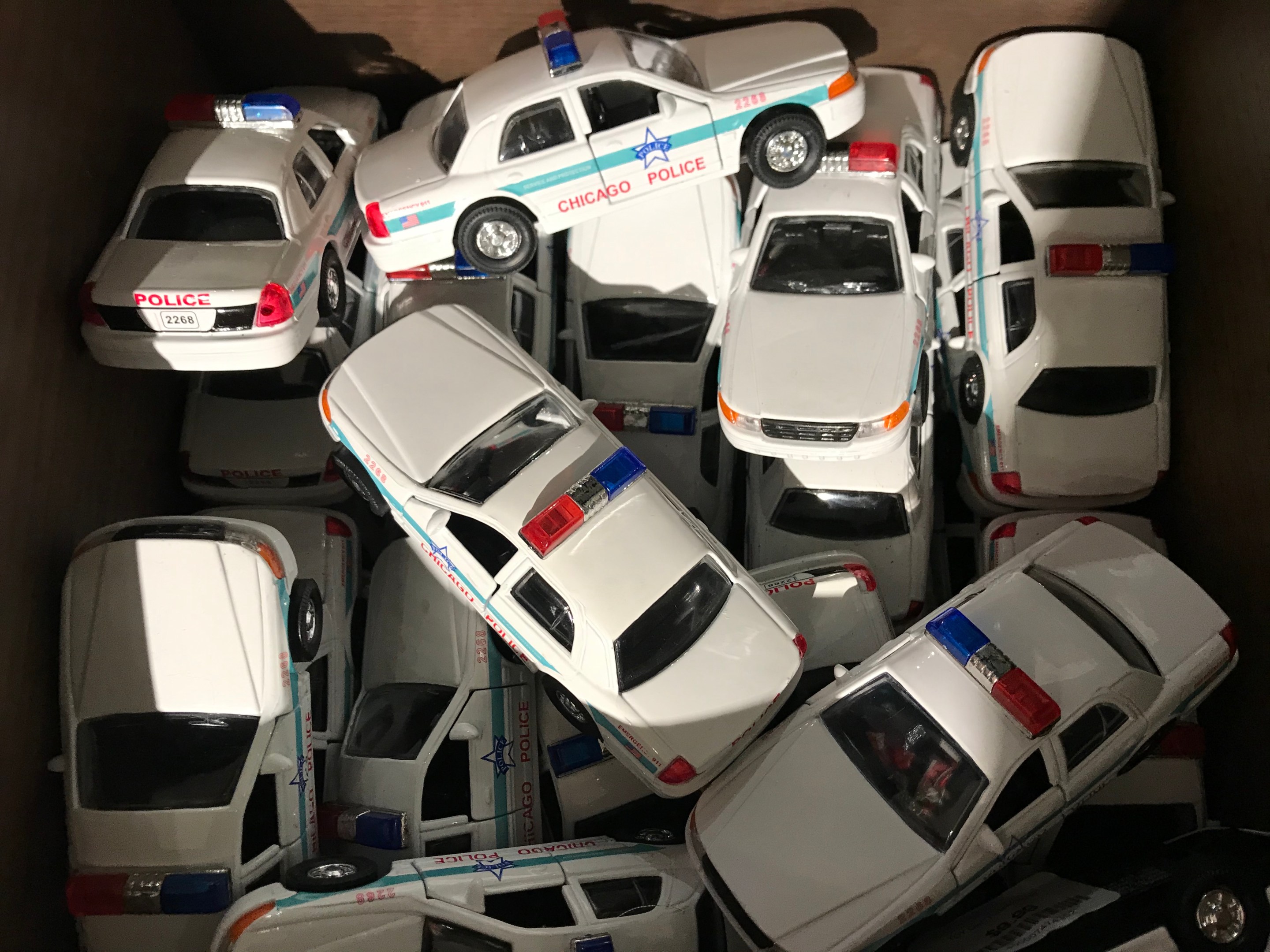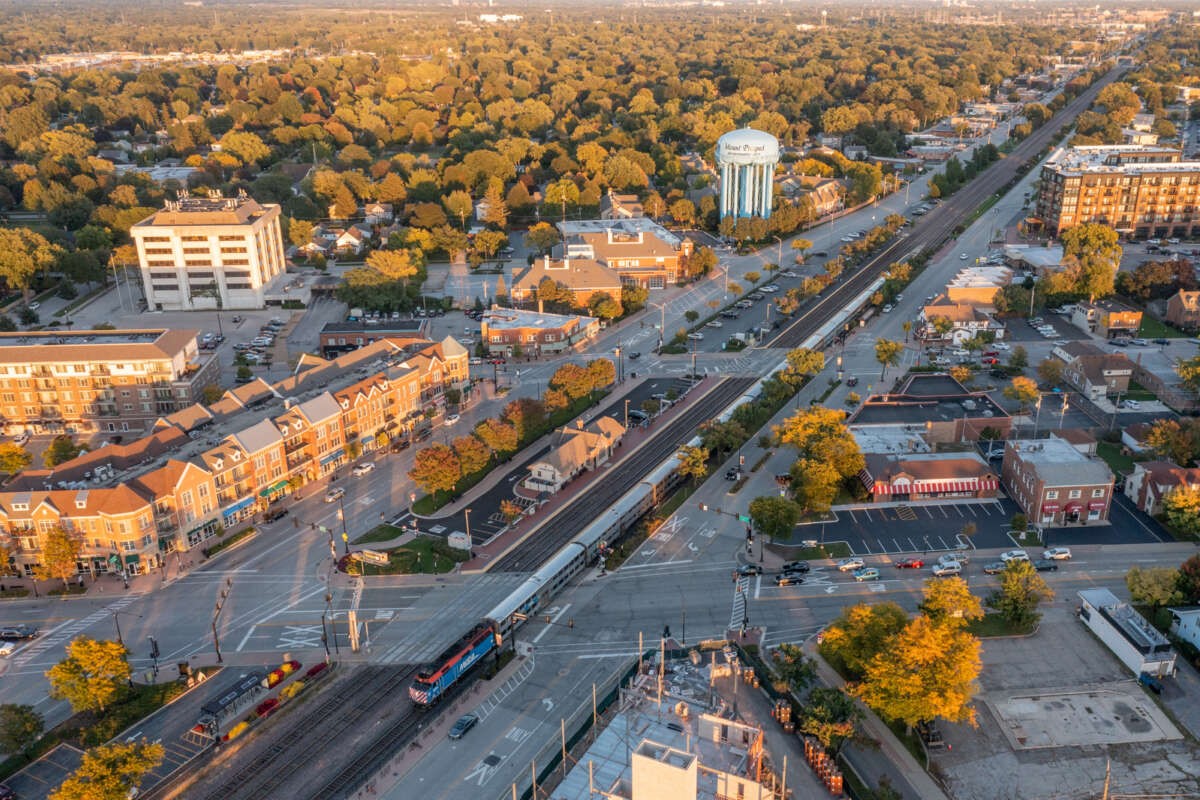At Streetsblog, our focus is on sustainable transportation, primarily walking, biking, and transit. But the recent news that Chicago police officers have continued to pull over Black drivers exponentially more often than their white counterparts should trouble anyone who wants our city to have a more equitable mobility system.
According to a report from Block Club Chicago's Pascal Sabino, the state-produced Illinois Traffic and Pedestrian Stop Study found that local police stopped over 204,000 African-American motorists in 2020, while only about 35,000 white drivers were pulled over. The report is published each year in accordance with a 2003 state law intended to help local governments identify and address racial profiling.
But since then the total number of drivers pulled over has generally continued to grow, while racial discrepancies have stayed fairly constant, with about seven times as many Black drivers stopped by police each year as whites. Latino motorists were about three times as likely to be pulled over as whites.
As part of a 2015 agreement between the city of Chicago and the civil liberties group, the city agreed to make sure that investigatory stops of pedestrians, aka "stop and frisk" were done in a constitutional, racially equitable manner. While pedestrian stops plummeted in the wake of that agreement (although the vast majority of those stopped were still African-American), motorists stops have generally sharply risen since then. While there were roughly 85,000 traffic stops by Chicago police in 2015, by 2019 there were almost 600,000 cases of officers pulling over drivers.
On the other hand Chicago traffic stops dropped sharply in 2020, down to 327,224, probably due to less driving during the COVID-19 pandemic, Block Club reported. But even then about 62 percent of drivers pulled over were Black, while only about 10 percent were white. African-American, non-Hispanic whites, and Latinos each make up about a third of the Chicago population.
The state report also found that 90 percent of the traffic stops did not result in a citation, which suggests that motorists generally aren't being stopped for egregious traffic violations. “It seems to be without justification," American Civil Liberties Union of Illinois attorney Rachel Murphy told Block Club. "While it may seem like a good thing that you’re not getting a ticket … your day has been interrupted. You’ve potentially had your car searched. It’s still frightening because you’re dealing with an armed officer. There’s a power imbalance."
If it's the case that police are using traffic stops for minor infractions as a strategy to conduct searches in order to prevent more serious crimes, it doesn't even appear to be an effective tactic. Less than one percent of stops resulted in police finding guns, according to Murphy.
Meanwhile, the white drivers who were stopped by Chicago police were more likely to be found with illegal items. 32 percent of white motorists who were stopped and had their cars searched were found to have contraband, while that was the case with only 23 percent of Black motorists stopped and searched.
The phenomenon of police disproportionately detaining Chicagoans of color, particularly African-Americans, for minor traffic violations, likely as a pretext to conduct searches, has been an issue for people riding bikes as well. In 2018 the Chicago Police Department acknowledged that officers were writing exponentially more tickets for bicycle infractions in Black neighborhoods than majority-white ones as a pretense for conducting searches. And otherwise-innocent people ticketed for biking on downtown sidewalks that summer were about three times as likely to be African American as white. Black bike advocates spoke out forcefully against these disparities.
Perhaps as a result of this outcry, in September 2019 a Chicago Tribune report found that the number of bike tickets written citywide dropped by almost 50 percent from 2016 to 2018, an encouraging sign. But over 50 percent of last year’s tickets were still written in African-American communities on the South and West sides, which meant there was still work to do to fix the problem. Streetsblog Chicago will try to provide an update on that issue in the near future.
Read the Block Club article on the traffic stops report here.



